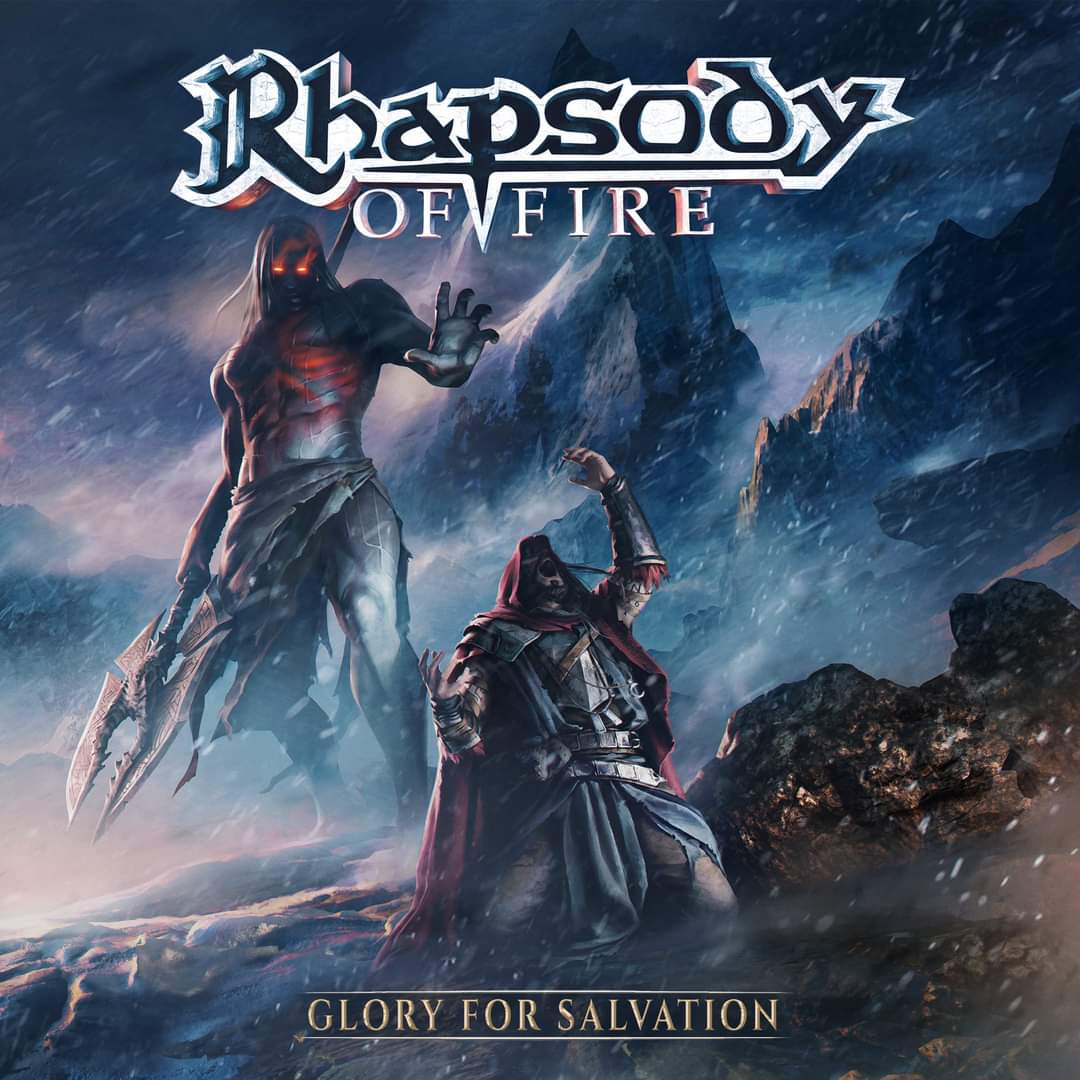Growing as a band, but what's the way forward? - 70%
Rhapsody of Fire has not had the easiest road to success. Following the departure of the maestro in 2011, there has been a rather Denethorian response to the legendary band’s output. While 2019’s The Eighth Mountain was a major step forward—with new singer Giacomo Voli filling Fabio’s poofy shirt and pirate boots with ease—the album felt like self-plagiarism. That sense of self-plagiarism gets at the very problem that Rhapsopoli of Fire has had. If Luca was the flighty artist constantly on the move, Staropoli was the guy who's kept writing the band's hymn-like choruses; an innovation from 1997. Combining these two artistic visions created something unique. But the split left Rhapsody of Fire with three problems. First, Staropoli needed to become a better composer; second, he had to replace his band; and lastly, he needed to forge a vision for Rhapsody of Fire. Does Glory for Salvation accomplish these goals?
Glory for Salvation is Rhapsody of Fire’s most complete and engaging album since the split and the band has almost completely turned over. Staropoli plays keyboards and his orchestrations are the record's backbone, while his vision—trademark choruses and all—defines the band's current sound. His work is complemented by Roberto de Micheli’s neoclassical fretwork. A talented player, de Micheli works in tandem with bassist Alessandro Sala and drummer Paolo Marchesich as the metal core of Rhapsody of Fire's sound. Together, these guys litter Glory for Salvation with powerful riffs and dramatic interludes and the band works together well. In particular, Sala and Marchesich show off on multiple occasions that they are well-acquainted with each other (“I’ll Be Your Hero,” or “Infinitae Gloriae”). The end result is inspiring and fun, with a lot of highlights. Still, the musical fireworks can sometimes be suddenly offset by nostalgia or anachronisms, like pure ‘90s europower drums (“Maid of the Secret Sand”) or recycling “The March of the Swordmaster” for the fifteenth time in the band’s career ("Terial the Hawk").
One striking feature of Glory for Salvation is just how much Staropoli has developed as a writer. I openly criticized him in the past for writing in "sentence fragments rather than complete sentences," and he has largely overcome this. Gone are the simplistic ABAC riffs that made 2013’s The Dark Wings of Steel embarrassing. Instead, tracks like “The Kingdom of Ice” and “Glory for Salvation” feature creative arrangements that utilize progression and drama. Almost all the songs feature genuinely interesting verses, for example, where the guitars riff countermelodies or—a personal favorite—the choral hits in “The Kingdom of Ice,” where the voices create tension both rhythmically and harmonically. These lively and creative arrangements shine when combined with Giacomo Voli’s dominant performance, impressive power and range (“Infinitae Gloriae”). Voli even shows off some genuine grit (“Abyss of Pain II”).
The problem with Glory for Salvation is that it doesn’t feel like a developmental step for the band. Rhapsody of Fire seems to have misdiagnosed what made them successful earlier, investing too deeply into sounding exactly like Rhapsody of Fire has always sounded. And while the songs are fun, this isn't the same band and it is definitely not the same time. Compounding this, the record sounds substantially worse than its predecessors. Glory for Salvation's DR5 is a major regression, with the drum sound moving from a more acoustic sound to something which sounds entirely replaced and the guitars buried; is this due to budget cuts or a new drummer? More worrying, de Micheli’s solos are still hit and miss. With some exceptions, the guitar work often sounds the best in the melodic leads, not the solos. De Micheli’s soloing style, unfortunately, feels anonymous.
Glory for Salvation is a fun album which demonstrates how much the new version of Rhapsody of Fire has gelled in recent years. Even in light of my concerns, the songs feel like Rhapsody while never feeling like self-parody and Staropoli’s compositions continue to get stronger. But I worry that doubling down on what Alex Staropoli thinks made Rhapsody worthy of Fire isn't a long-term solution. What made Rhapsody of Fire (and associated acts) capable of releasing the same album again, and again, and again, and again for years was that they pursued variation within the formula. But Staropoli doesn’t see that what made The Frozen Tears of Angels iconic was tensions in the band’s sound.** This record is fun. But what Rhapsody of Fire needs next is for Staropoli to leave the renaissance period (i.e., 1997) behind and figure out how to evolve his sound.
**This refers to the liner notes from the special edition of The Frozen Tears of Angels where Turilli and Staropoli give their thoughts on each song. For the renaissance-inspired track "Danza di Fuoco e Ghiaccio," Staropoli comments that the listener "will hear the most 'out of context' guitar solo I have ever heard in my entire life... but I love it!!! Ha Ha!" In my opinion, that solo takes the track from being kind of fun and turns it into something far more interesting. It's a fantastic solo, but it's also the kind of thing that Staropoli would never, ever write and that's the problem.
Originally written and published by me at AngryMetalGuy.com: https://www.angrymetalguy.com/rhapsody-of-fire-glory-for-salvation-review/

